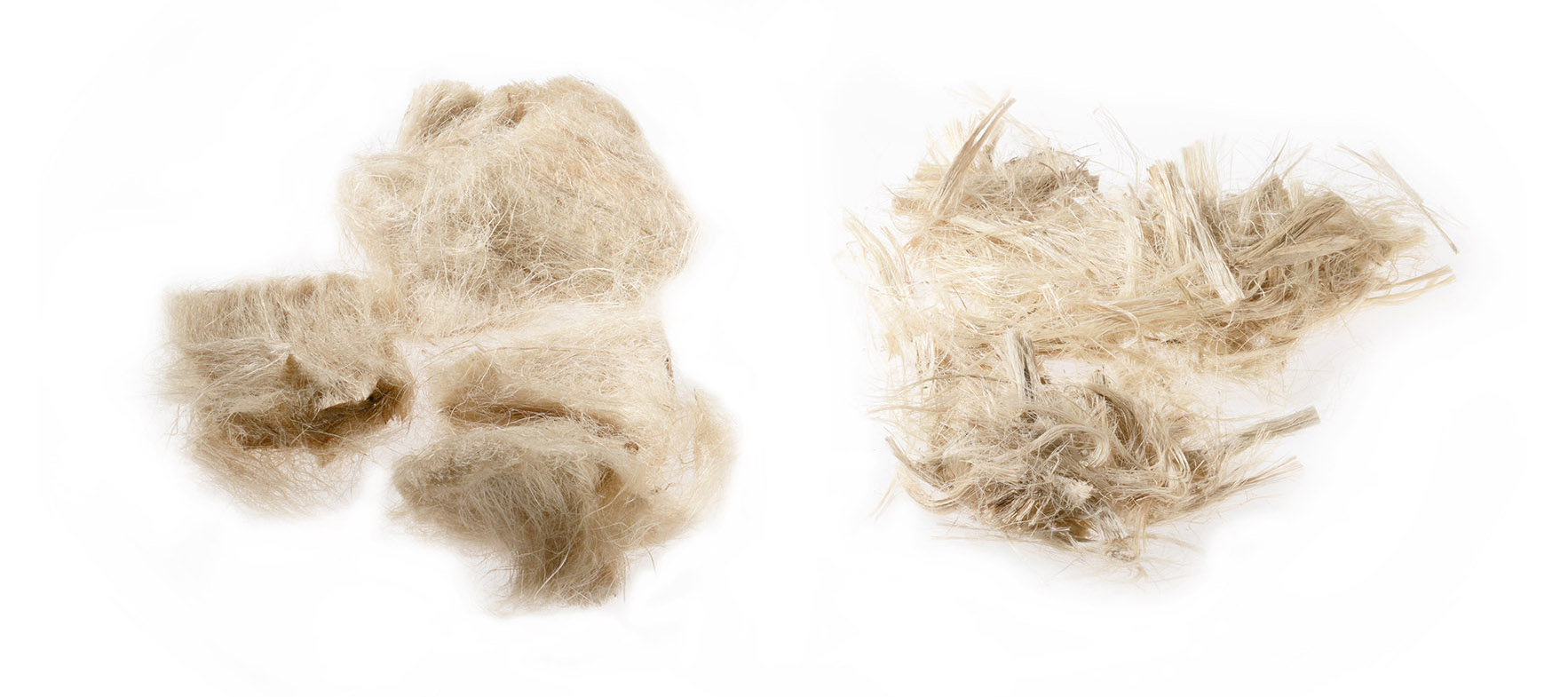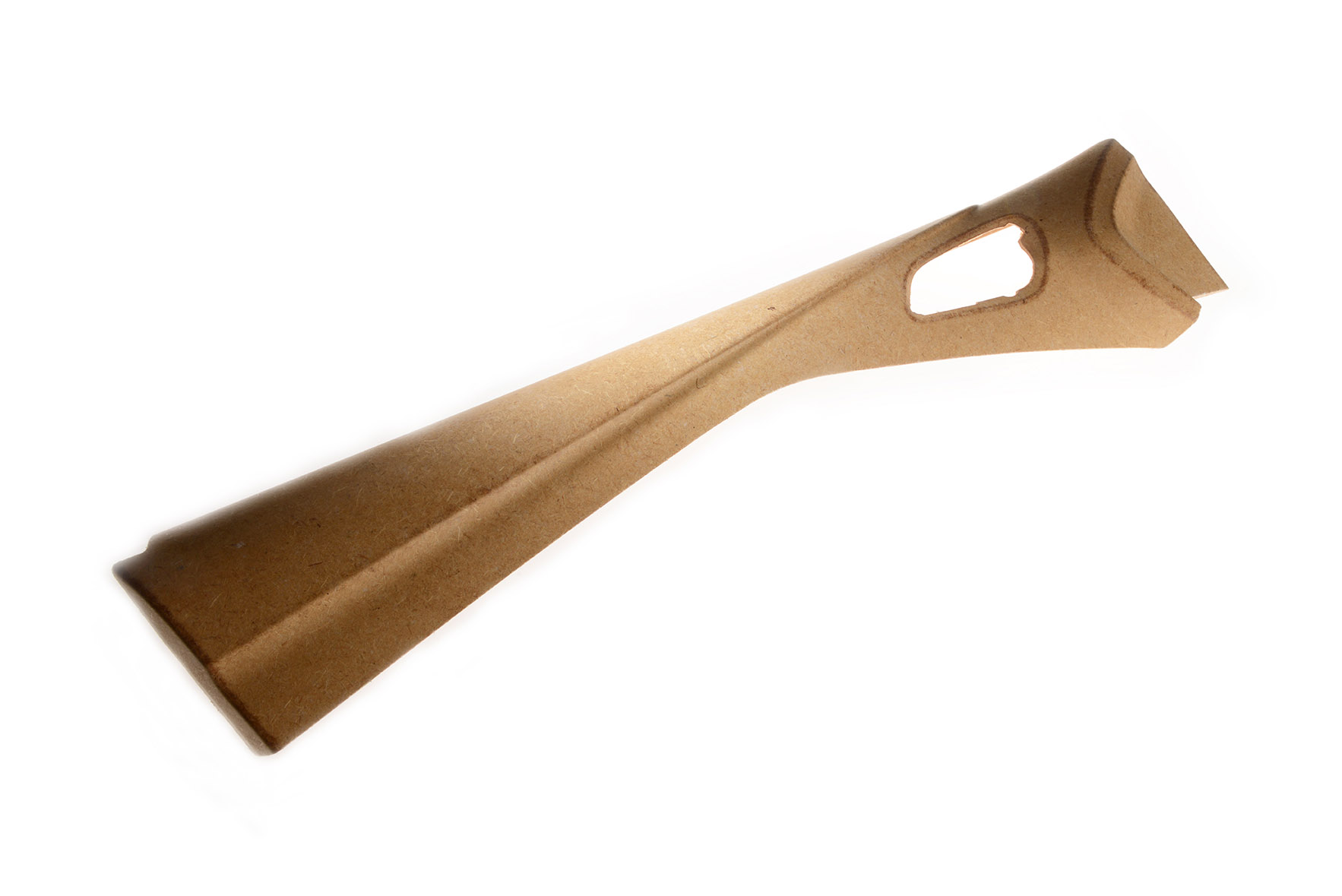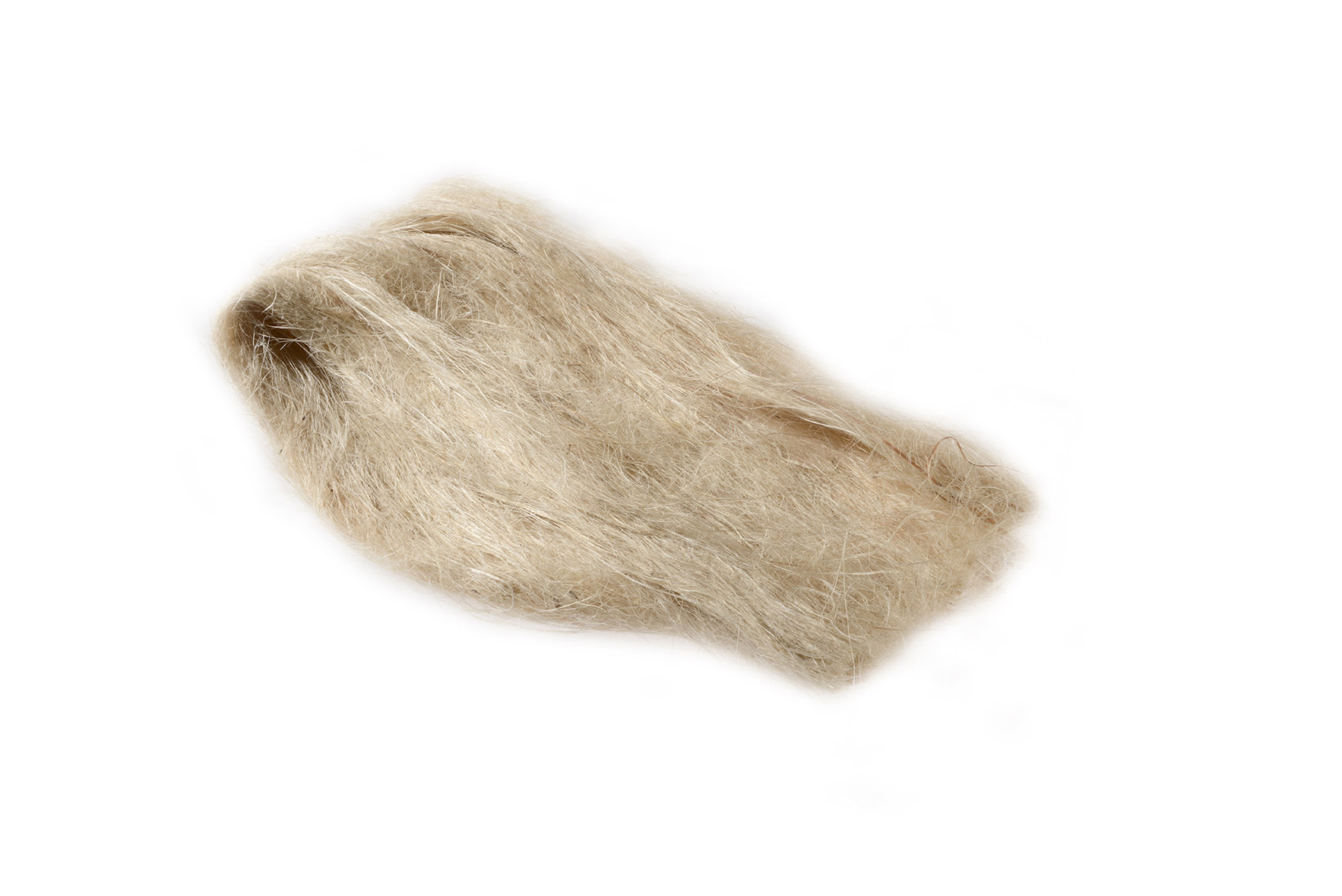Kenaf (Hibiscus cannabinus) is a fibre plant similar to jute from the mallow family, which grows and is cultivated in topical to subtropical climates. Their stem or fibre lengths can reach up to 4 m. The shape of the leaves is reminiscent of hemp leaves (hence, the nickname “cannabinus” like cannabis). As opposed to jute, kenaf develops relatively large flowers, which open before sunset and already blossom at midday on the same day. In addition to the fibres, the oil extracted from the seeds is used for both technical purposes and as a foodstuff. The traditional use of kenaf in the countries of origin is for making ropes or sackcloth, and particularly in Bangladesh, kenaf is referred to as Meshta.
The fibres are extracted from the bast of the stem. The removed fibres are dried at first and can then be roasted at any point following the drying process.
As is the case with jute, the biodegradability of the fibres is one of the main reasons for use and constitutes the major competitive advantage over synthetic fibres.

RAW FIBRES
Kenaf fibres are principally utilised as reinforcement fibres for natural fibre reinforced plastics. The admixture of kenaf fibres enhances the heat resistance and stiffness of the end product. This reduces splintering caused by a possible breakage of the end product. Another advantage for the processing industry is above all the end product’s significant reduction in weight. A continually growing area of application for kenaf fibres therefore includes the automotive industry. Kenaf have long been so-called "co-drivers” as they are hidden in the door claddings, fittings and rear shelves of many present-day vehicle models. Besides kenaf, these components often contain other natural fibres such as hemp or flax. However, the fibres are also applied in the paper industry. Further proof of its versatile nature is the fact that biodegradable mulch film for gardening is also manufactured using kenaf fibres, for instance.

SLIVER
Sliver is a long, continual fibre tape, loosely held together, which is obtained in roll form from the carding machine following the carding process. This product is mainly used in the automotive industry and for interior design and by plumbers to seal pipes from time to time.

OTHER USE
More novel applications can be found in the construction industry (e.g. as insulation material). Another use of kenaf is as feed or bedding material for livestock.